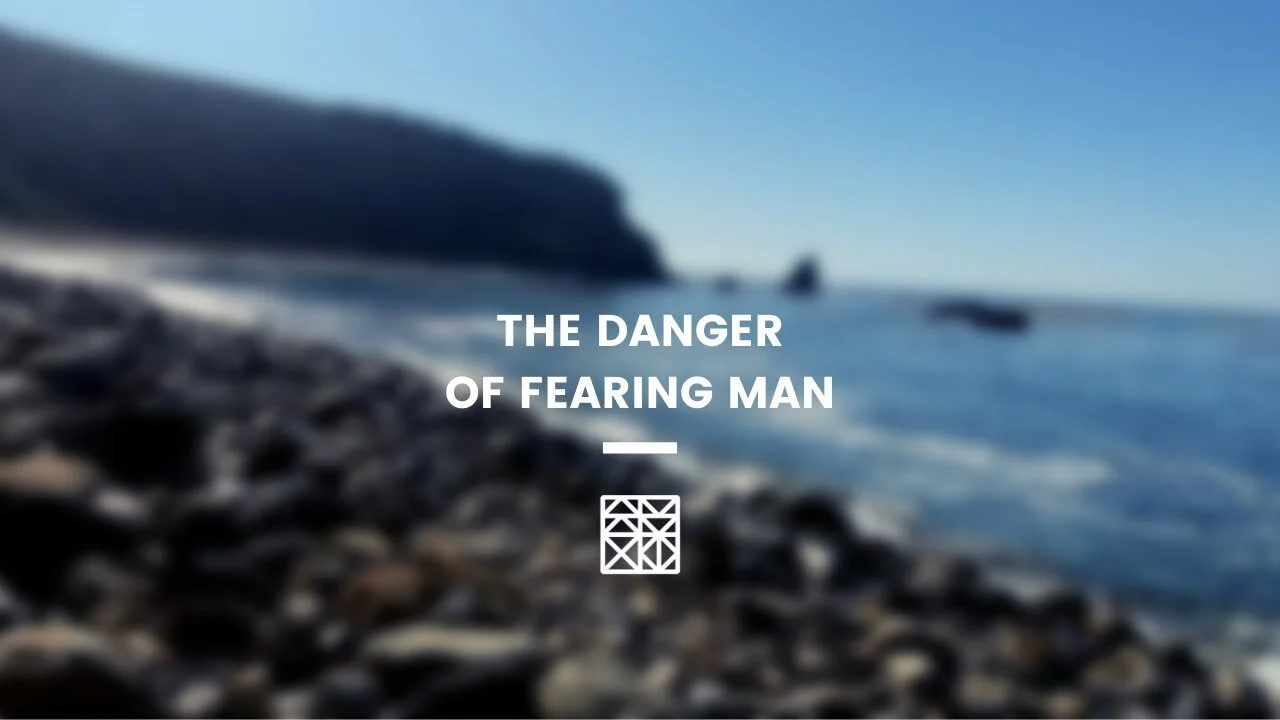1 SAMUEL 21 - THE DANGER OF FEARING MAN
1 Samuel 21
In the previous Chapter, we saw that Saul had decreed that David must die, & that Saul’s son, Jonathan, had tipped David off and protected him. So, in Chapter 21, David is running for his life, with a small band of supporters accompanying him. After leaving Jerusalem, David comes to the town of Nob, which was where the priests lived. There, he encounters Ahimelech the priest, and he lies to Ahimelech by saying that he is alone and on official business for King Saul. He asks Ahimelech for some bread to eat, but the only available bread is holy bread that is supposed to be used exclusively in the worship of God. Yet, Ahimelech gives David the bread, and Jesus later endorses this in Mark 2:23-28 on the ground that showing mercy and help to those in need is of greater value in God’s sight than strict adherence to ceremonial laws. David also asks Ahimelech for a sword, and Ahimelech gives him the sword that Goliath had been carrying when David had killed him in battle some time earlier.
At first glance, this seems like a good example of how God will provide for his own, and it is that, but there is also so much more in this account. David’s interaction with Ahimelech is noticed by one of Saul’s servants who happens to be in town as well. In the next Chapter, this servant reports the matter to Saul, and Saul has all of the priests of Nob killed for collaborating with David, except for one who escapes.
As David continues his journey as a fugitive in Chapter 21, he ends up fleeing to Philistine territory and into the company of King Achish, who normally would have been David’s enemy. From the text, it looks like perhaps David was hoping to hang out there incognito, but he is recognized and called out as the one who had killed thousands of his enemies. This causes David to fear for his life, so he pretends to be mentally deranged and makes marks on the gate of the City and drools down his beard. Achish falls for the ploy and believes that David is insane, and lets him go. Again, this seems like another example of God watching over his people, but there is more to it than that.
It is quite evident from this account, that David is living in fear of man, particularly of Saul and his army. This is not the same David who bravely had no fear of Goliath earlier in his life, and faced off against him alone on the field of battle, fully trusting in the power of God to give him the victory. Out of that fear, David ran not into safety, but into sin. He lied to the priest Ahimelech and caused him and the other priests to be killed. He then ran into the arms of his enemies and disgraced himself in their presence as God’s anointed servant. As Prov. 29:25 says, “The fear of man lays a snare, but whoever trusts in the Lord is safe.” In this Chapter, we see David allow his fear of man to become greater than his fear of God, and he falls right into that snare, with disastrous consequences.
We all need to have a God confidence, not a self confidence, in order to overcome the fear of man in our lives. David had this when he went up against Goliath, but he appears to have lost it here. Perhaps David was seeing himself as a victim, which is never a good place for a child of God to be. As it did with David, it will cause us to make bad decisions. We need to remember, as Rom. 8:37 tells us, that in Christ, we are more than conquerors. Jesus told us in Matt. 10:28 to not fear those who kill the body but cannot kill the soul, but rather to fear God who can destroy both soul and body in Hell. When we properly fear God, and realize at the same time that He, as a powerful and fearsome God, also loves us so much that He sent His only Son to die for us, then we will grow in our confidence that He can and will take care of us, and that there is no need for us to fear man or circumstances. Then we can say, along with the writer of Hebrews, who quoting Ps. 118:6, said this: “The Lord is my helper; I will not fear; what can man do to me.”
Later on, David, after having had time to reflect on the events of this Chapter, wrote Ps. 34 about what he had learned. In Vs. 9 of that Psalm, he reminds us all of what he had lost sight of at the time. “Oh, fear the Lord, you His saints, for those who fear Him have no lack.” And then, in Vs. 19, he declared a related truth that we would all do well to remember, “Many are the afflictions of the righteous, but the Lord delivers him out of them all.” We live in a fallen world, and we will be afflicted. Our Lord was afflicted, to the point of death, on our behalf. Yet, He was delivered from his afflictions with a resounding victory over sin, Satan, and death, and He will do the same for us when we put our faith, and trust, and confidence in Him.

